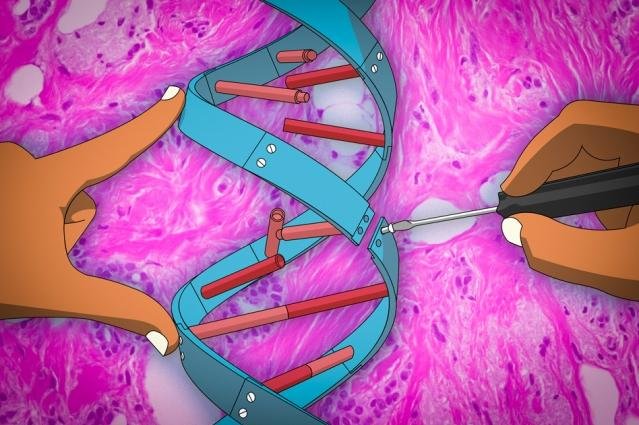A new gene therapy technique that uses microRNAs to prevent breast cancer metastasis was shown to be effective in early tests at the Massachusetts Institute of Technology. Photo by Massachusetts Institute of Technology
CAMBRIDGE, Mass., Sept. 19 (UPI) -- In addition to killing cancer with standard treatment options, researchers may have identified a method of preventing surviving cells from spreading to other parts of the body.
Using a microRNA treatment as part of chemotherapy for treatment of breast cancer could prevent the disease from metastasizing, according to in a study published in the journal Nature Communications.
Researchers at the Massachusetts Institute of Technology identified proteins that are important to cell migration and their process of invading otherwise healthy organs, successfully blocking their action and preventing the cellular processes in lab experiments and mice.
"The research offers the potential for combined experimental therapeutics with traditional chemotherapy in cancer metastasis," Julie Teruya-Feldstein, a professor of pathology at Mount Sinai Hospital in New York, who was not involved in the study, said in a press release.
The researchers scanned datasets for known single nucleotide polymorphisms, sites where microRNAs bind to the genome, and for breast cancer-related genes associated with the movement of cells, revealing an SNP called rs1071738 that is linked to metastasis.
Further study revealed rs1071738 disrupts the binding of microRNAs miR-96 and miR182, which are in turn prevented from controlling the expression of the protein Palladin -- which has been indicated in previous studies as having a role in the migration of breast cancer cells and their invasion of other organs. In lab experiments, applying miR-96 and miR-182 decreased expression of Palladin levels.
The researchers developed a method of delivering engineered microRNAs to breast cancer and embedded nanoparticles containing the microRNAs in a hydrogel scaffold, implanting them in mice. The method alone reduced metastasis, and was even more effective when adding the chemotherapy drug cisplatin.
"The idea is that if the cancer is diagnosed early enough, then in addition to treating the primary tumor [with chemotherapy], one could also treat with specific microRNAs, in order to prevent the spread of cancer cells that cause metastasis," said Natalie Artzi, a principal research scientist at MIT and assistant professor of medicine at Brigham and William's Hospital.















